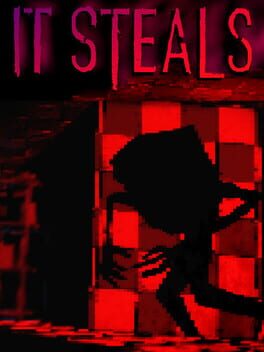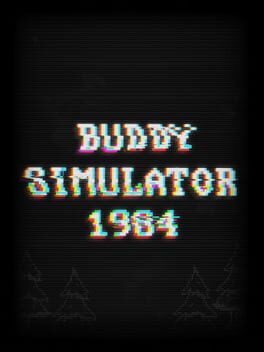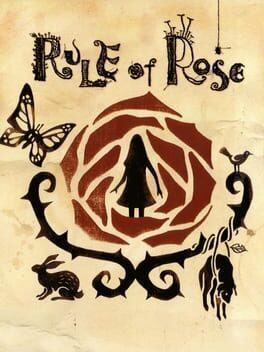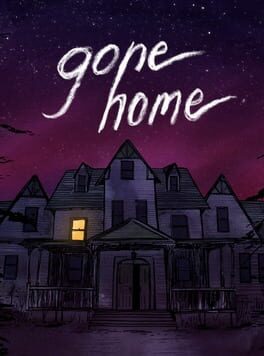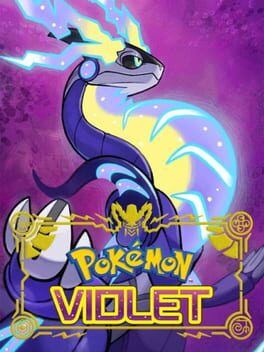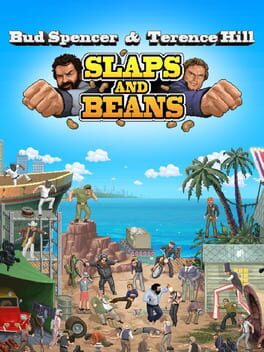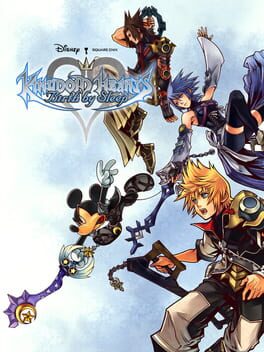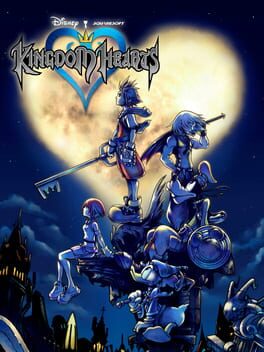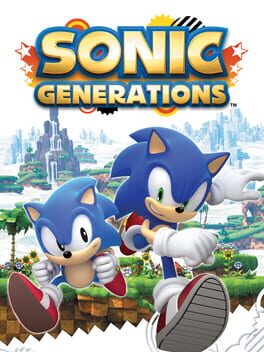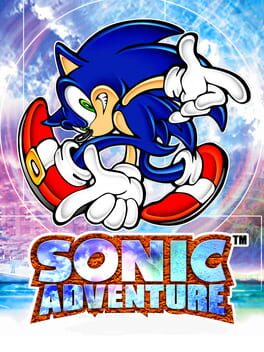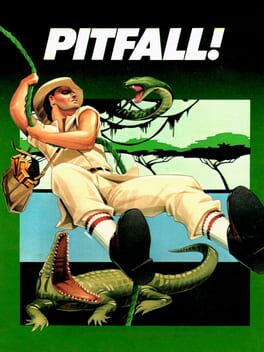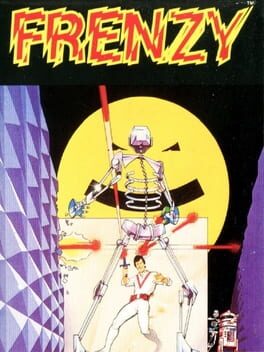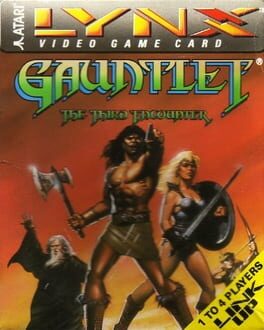scryingshame
2020
2021
2006
It suffers from the usual PS2-era shortcomings, such as frustrating puzzles and clunky combat, but there's no arguing that this an attractive psycho-thriller adventure. The narrative is creative and its world is vividly brought to life through excellent art and sound design.
It was quite controversial in its day but that reputation is entirely undeserved. Video games as a medium hadn't matured yet, as nothing you see here hadn't already been done in any other medium. This one deserves a remaster to earn the respect it deserves.
It was quite controversial in its day but that reputation is entirely undeserved. Video games as a medium hadn't matured yet, as nothing you see here hadn't already been done in any other medium. This one deserves a remaster to earn the respect it deserves.
2013
A narrative based on someone's coming-out story is a good starting point, but it falls flat by failing to explore it in any meaningful detail. The game spends most of its brief time meandering around the adolescence of its cast, which is always told and not shown, before rushing towards its undeserved ending.
There is no agency from the player to explore at will as everything is railroaded; no compelling incentive provided for it either, which makes me wonder why this had to be a video game at all. It has no mechanical faults but when that's the only praise I can give, I also can't recommend it.
There is no agency from the player to explore at will as everything is railroaded; no compelling incentive provided for it either, which makes me wonder why this had to be a video game at all. It has no mechanical faults but when that's the only praise I can give, I also can't recommend it.
2022
After decades of failing to innovate its core experience, Game Freak finally shook things up with a completely open world and a non-linear story which uproots most of the franchise's conventions. The gameplay hasn't changed much from the previous generation but it worked well enough.
Unfortunately, all of these praises are mired by its technical shortcomings – and frankly, these are too terrible to ignore. I stood on a rock and ended up halfway across the world, I had pokémon spawn under the floor, and was able to toggle the world's lighting with my battle menu. These would be funny if they didn't also crash your game.
It desperately needed more time in development. It's also painfully obvious that it was initially more ambitious before several features were cut. This is not a finished game by any means.
As of writing, Pokémon is valued at $70 billion. By comparison, Kirby is not even 1% of that. It really should be held to higher standards.
Unfortunately, all of these praises are mired by its technical shortcomings – and frankly, these are too terrible to ignore. I stood on a rock and ended up halfway across the world, I had pokémon spawn under the floor, and was able to toggle the world's lighting with my battle menu. These would be funny if they didn't also crash your game.
It desperately needed more time in development. It's also painfully obvious that it was initially more ambitious before several features were cut. This is not a finished game by any means.
As of writing, Pokémon is valued at $70 billion. By comparison, Kirby is not even 1% of that. It really should be held to higher standards.
I don't know why this exists but I'm glad it does. From the moment you hear the Trinity theme, it takes you back in time. The special attention to the combat style and buddy actions really make it feel like the source material. Terence and Bud feel very different and that's great.
My only criticism is that the controls could be simpler. They're more sophisticated than old beat 'em ups actually were, probably in an effort to add depth and complexity, but this isn't always a good thing.
My only criticism is that the controls could be simpler. They're more sophisticated than old beat 'em ups actually were, probably in an effort to add depth and complexity, but this isn't always a good thing.
I was starting to get sick of the melodrama present in CoM and KHII, so I rolled my eyes pretty hard when I first saw this game; but after playing it, my expectations were subverted.
Rather than trying to ground itself, BBS embraces its ridiculousness (whether intentional or not) and tells a surprisingly tragic story. Its choice of Disney properties is also quite appropriate, reflecting the setting and emotional journey of its characters quite well.
It still has some of the usual KH pratfalls and doesn't work well as a standalone entry, but it's arguably the best of the franchise. It's unfortunate that later entries do not conclude BBS's arcs in any meaningful way.
Rather than trying to ground itself, BBS embraces its ridiculousness (whether intentional or not) and tells a surprisingly tragic story. Its choice of Disney properties is also quite appropriate, reflecting the setting and emotional journey of its characters quite well.
It still has some of the usual KH pratfalls and doesn't work well as a standalone entry, but it's arguably the best of the franchise. It's unfortunate that later entries do not conclude BBS's arcs in any meaningful way.
2002
An innocent premise, fun gameplay, attractive visuals, incredible soundtrack, and many memorable moments. Its sequels would quickly abandon that first point but it doesn't stop the original game from being so charming.
I'm holding it back from a perfect score because of its clunky controls and occasionally unfair difficulty. I also think the Disney franchises are woefully underused (why can't they interact with each other?) but that's a personal gripe.
I'm holding it back from a perfect score because of its clunky controls and occasionally unfair difficulty. I also think the Disney franchises are woefully underused (why can't they interact with each other?) but that's a personal gripe.
2011
The Classic Sonic stages are a bit meh as they lack the physics that made 2D games so interesting, but you have to respect Sonic Team for trying.
In every other aspect, this is a fantastic love letter to Sonic's history and only improved on the high speed gameplay we saw in Sonic Unleashed.
Maybe Sonic was a little too eager about his future though.
In every other aspect, this is a fantastic love letter to Sonic's history and only improved on the high speed gameplay we saw in Sonic Unleashed.
Maybe Sonic was a little too eager about his future though.
1998
People say it "didn't age well" but let's face it, it never looked good. That doesn't stop it from being incredibly fun; and you have to respect Sonic Team for making a 3D platformer to rival its contemporaries with no sophisticated camera controls.
This game has a lot of heart, from its adventure gaming influences to its soundtrack and character designs. It's truly strange that we've never seen another Sonic game quite like this, but Sega have a lengthy record of bad decisions.
This game has a lot of heart, from its adventure gaming influences to its soundtrack and character designs. It's truly strange that we've never seen another Sonic game quite like this, but Sega have a lengthy record of bad decisions.
1982
Besides being weak, the 2600 was a nightmare to code for. Pitfall is a feat of technical wizardry which shows a glimpse of the kind of console games we'd only see a few years later.
But does it hold up well today? Hell yeah it does! Largely thanks to its responsive controls and intuitive challenge, this is a game that's very hard to hate.
But does it hold up well today? Hell yeah it does! Largely thanks to its responsive controls and intuitive challenge, this is a game that's very hard to hate.
1997
The only thing stopping me from giving this a perfect score are the numerous game-breaking glitches. Other than that, it's an incredibly ambitious game which showed us how player agency and freedom should be handled. It's also hard not to fall in love with the setting.
Little advice: save your stimpaks for Mariposa, a certain someone will need them.
Little advice: save your stimpaks for Mariposa, a certain someone will need them.
1982
